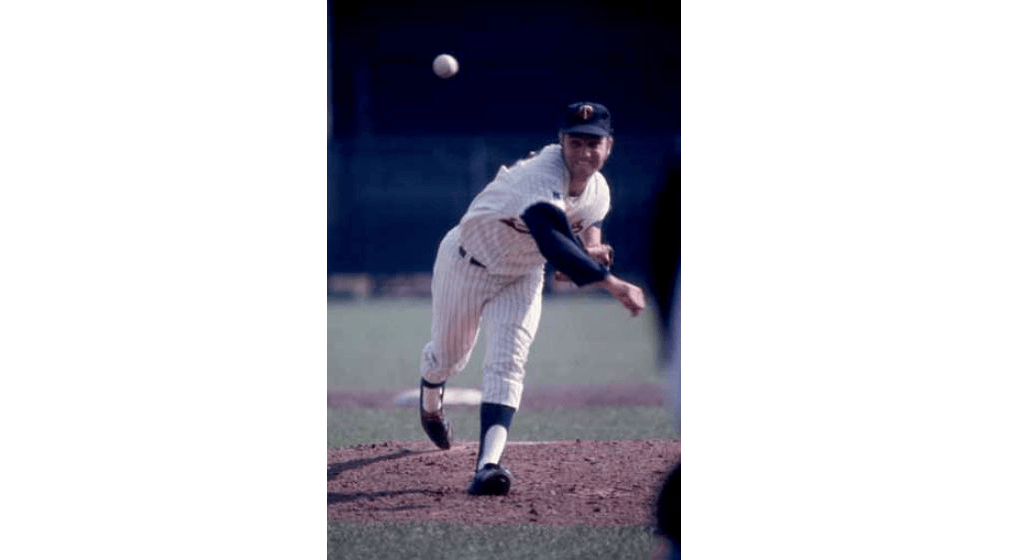MINNESOTA 4, CHICAGO 3 IN CHICAGO
Date: Sunday, April 27
Batting stars: Frank Quilici was 2-for-4. Cesar Tovar was 2-for-5. Harmon Killebrew was 1-for-2 with a home run (his third), a walk, and a hit-by-pitch. Rod Carew was 1-for-4 with a two-run homer, his second.
Pitching stars: Dave Boswell pitched an eight-inning complete game (see below), giving up three runs on six hits and four walks and striking out three.
Opposition stars: Buddy Bradford was 2-for-3 with a double, a walk, and two RBIs. Gail Hopkins was 2-for-4. Wilbur Wood pitched two perfect innings of relief, striking out one.
The game: Killebrew homered in the first inning to give the Twins a 1-0 lead. The White Sox got the run back in the bottom of the first, as Aparicio singled, went to third on a stolen base-plus-error, and scored on a Hopkins single.
The Twins got a pair of two-out hits in the second, but did not score. They took the lead in the fourth, however, as Bob Allison led off the inning with a double and scored on a Leo Cardenas single. The lead lasted until the sixth. Hopkins and Duane Josephson singled, leaving men on first and second with two out. Bradford then came through with a two-run double, putting Chicago up 3-2.
The Twins took the lead back in the seventh. With two out, Tovar singled and Carew followed with a two-run homer to put the Twins up 4-3.
The White Sox went down in order in the seventh, and the Twins did the same in the top of the eighth. In the bottom of the eighth the White Sox put men on first and second with two out, but Don Pavletich was caught looking to end the inning. The Twins went down in order in the top of the ninth.
And oddly, that's where the game appears to end. Everything in the box score indicated that the bottom of the ninth was not played, but no reason is given for that. One supposes that the most likely explanation is that the game was rained out, but that's a strange time to call the game--with a one-run difference going to the bottom of the ninth. The start time weather indicates 68 degrees and cloudy, which doesn't tell us much of anything. If someone has the time and inclination to research what happened, it would be interesting to know.
WP: Boswell (2-2). LP: Gary Peters (1-3). S: None.
Notes: This looks like Billy Martin's version of a Gardy-style B lineup, although Martin had some better players to use when he did it. Tovar was in center rather than Ted Uhlaender. Allison was in left. only his fifth start of the season. George Mitterwald was behind the plate rather than Johnny Roseboro, and Quilici was at third base.
Killebrew was batting third in this game and Tony Oliva fourth, something Martin sometimes did against left-handed pitchers.
Boswell had started just three days earlier, on April 24, and had lasted just 2.2 innings.
Bradford had a heck of a series against the Twins, going 6-for-11 with a home run, two doubles, and a walk, driving in four runs.
I have no memory of Gail Hopkins. He was the mostly-regular first baseman for the White Sox in 1969. It was his first full year with the team. He played for Chicago from 1968-1970, Kansas City from 1971-1973, and the Dodgers in 1974. He never hit for much power, but in his good years posted decent batting averages and OBPs. His best year looks like 1971, when he batted .278/.364/.431 in 295 at-bats. His career numbers are .266/.352/.376. He played in Japan for three seasons and hit with power there, belting 69 home runs over three years. He had a successful career after baseball, first getting Ph. D. in biology and then graduating from medical school. He practiced medicine for many years in Lodi, California and in Hinsdale, Illinois. He has two children, both of whom are also doctors. At last report, he was also the chairman of the Board of Trustees of Ohio Valley University.
Record: The Twins were 10-7, in first place, leading Oakland by a half game.




 (1 votes, average: 9.00 out of 10)
(1 votes, average: 9.00 out of 10)




